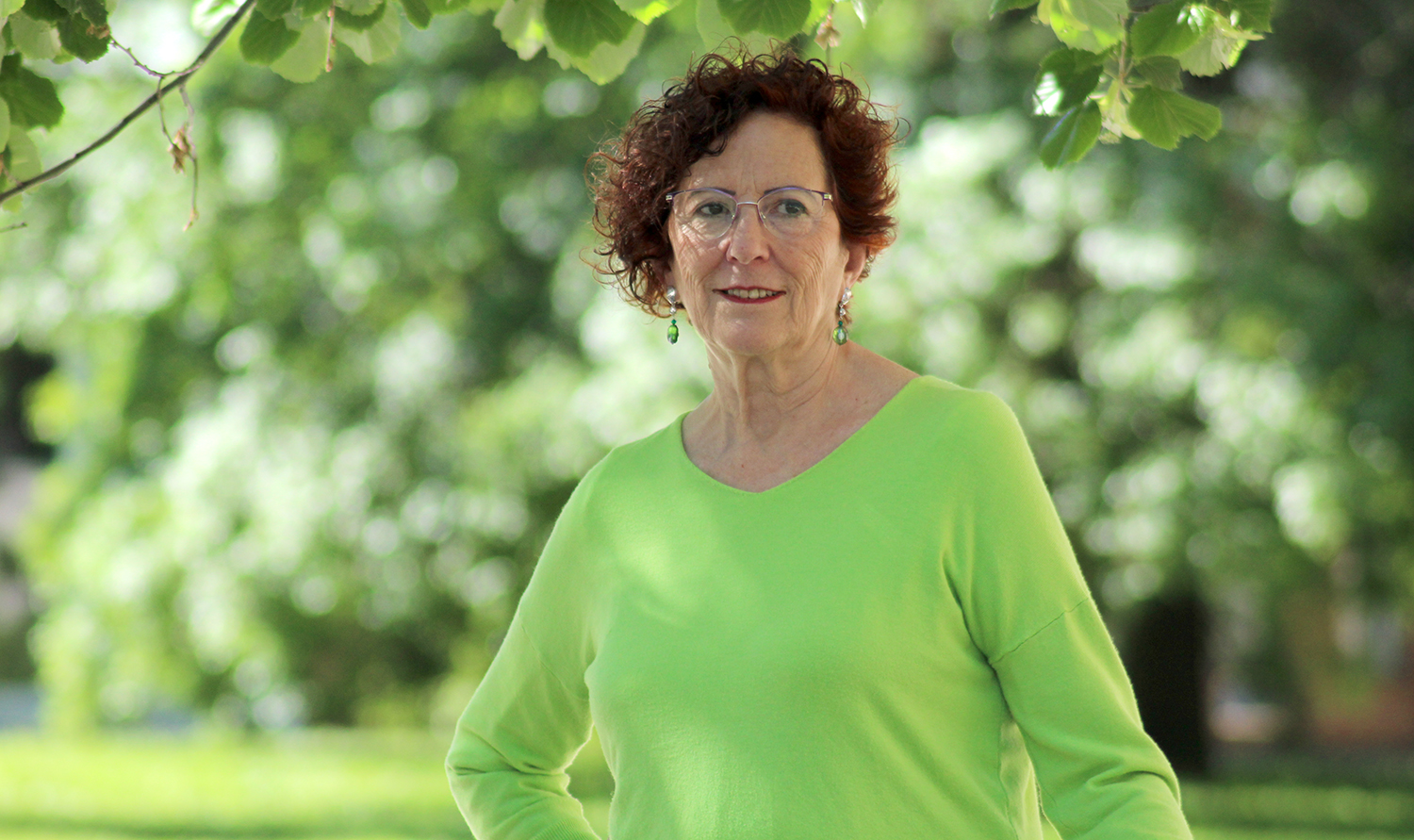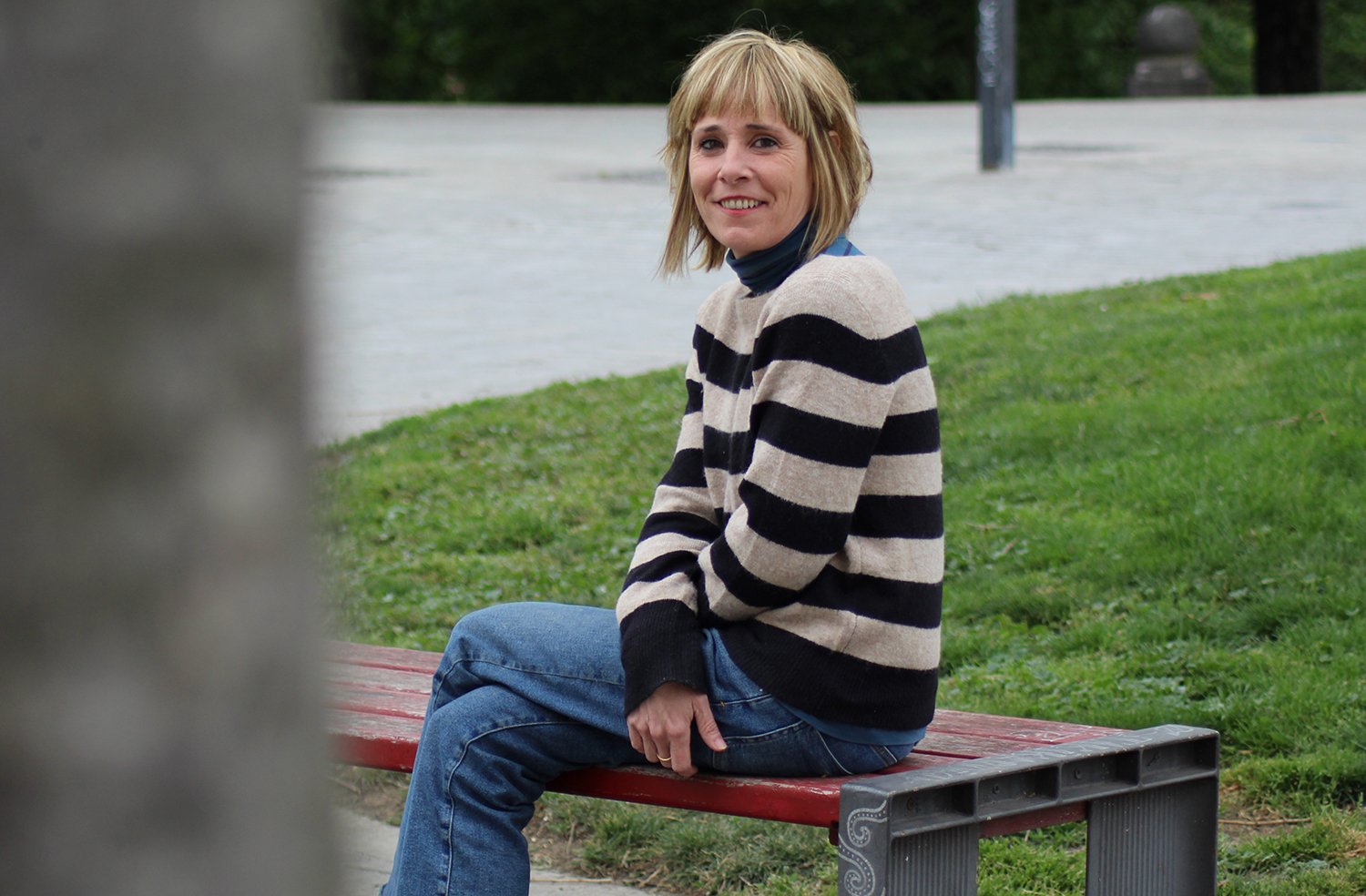"The worst thing about fibromyalgia is that others don't believe it."
- Although for some it is invisible and implausible, there is fibromyalgia and there are more than two hundred symptoms associated with the disease. Some of them are supported by Edurne Iribarren (Otsagabia, Navarra, 1954) and stressed that they have a “great” impact on daily life: “I still wake up with energy and desire to do something, but I’m tired right away.” As a result, it has suffered employment discrimination.

Severe pain and fatigue. These are some of the symptoms that fibromyalgia can cause. Both are especially felt by Edurne Iribarren: “Today I don’t know what is the result of age, fibromyalgia, parkinson’s or other things.” At 40 he was diagnosed with rheumatoid arthritis. It is a chronic disease that causes joint pain, swelling and stiffness: “I was in great pain, but thankfully after a year and a half very badly, I didn’t have any more appearances.” He was then told that he had residual fibromyalgia: “Since then I have not been in good health.”
Fatigue greatly influences your day to day, so you can’t do things that you “like”, such as going to the mountain. In addition to the difficulties to be with friends, working is also “very hard”. Although he has already retired, for many years he has been a professor at the Iturrama Institute of Pamplona: “He was taking a lot of casualties because he was not well, but people, because he doesn’t see us badly, don’t understand it. The worst thing about fibromyalgia is that others don’t believe it.”
This has led him to “discredit” his work and suffer discrimination: “When you leave, they spend a few days until they replace you, then the rest of the teachers take more work. I’ve felt very despised and marginalized from some of my colleagues.” Her parents also opposed: “To the management they proposed that I leave.” But they didn't.
Medical Exclusion
Some people with fibromyalgia have to apply for permanent incapacity for work because they find it impossible to continue working. Many denounce that they have great difficulties and that the process is very hard. “It was clear that on that road I would get nothing. Many doctors don't believe us and treat us with contempt. Let’s see if they investigate at once,” he said.
"It can lead you to depression because people don't understand you, because you're so bad and because it's so hard to see your body impossible."
Despite the obstacles, Iribarren did not want to leave his job: “I liked it a lot, and although I now saw it different, then it seemed like a tragedy to leave the job.” However, it was impossible for him to be a professor because he was “a great job” to manage the class, to keep the attention of the students, hours out of class, etc. : “People don’t know how hard it is to have thirty students.”
Therefore, despite its unusual nature in education, the institute's doctor changed jobs and started working in the library: “I was very lucky.” His rhythm of work was quieter and the days when he was ill had more freedom: “They had the library quite forgotten, so I didn’t put pressure behind it. When I had a bad day I could be reading calmly.” At the same time, students who were expelled from the classroom began to send them to the library, and each day they gathered around ten people: “Students in general are very good, but get bored in class. In the library they were very good and helped me to get rid of the dust and organize the books.” At the age of sixty, he worked in the library until his retirement.
Emotions and diseases
Iribarren believes that being invisible, not understanding, discriminating, etc. can have serious health consequences: “It can lead you to depression because people don’t understand you, because you’re really bad and because it’s very hard to see your body without power. I don’t know how to explain it, but suddenly you stop being as before it was.”
He adds that diseases have a “direct link” with emotions: “I have a lot of things, and I think it’s because I’m very sensitive. As a child I have suffered a lot, sometimes for no reason, because I am how I am.”
A part of the body?
“The mind, because in it all things happen. It's very different to be optimistic or pessimistic, thoughts have a lot to do with our lives. I live with a very optimistic and quiet man, and I see how he lives. I, on the other hand, am the opposite, always worried and thinking about bad things. I do a lot of effort and work, and although I've improved and learned, that's my trend."











